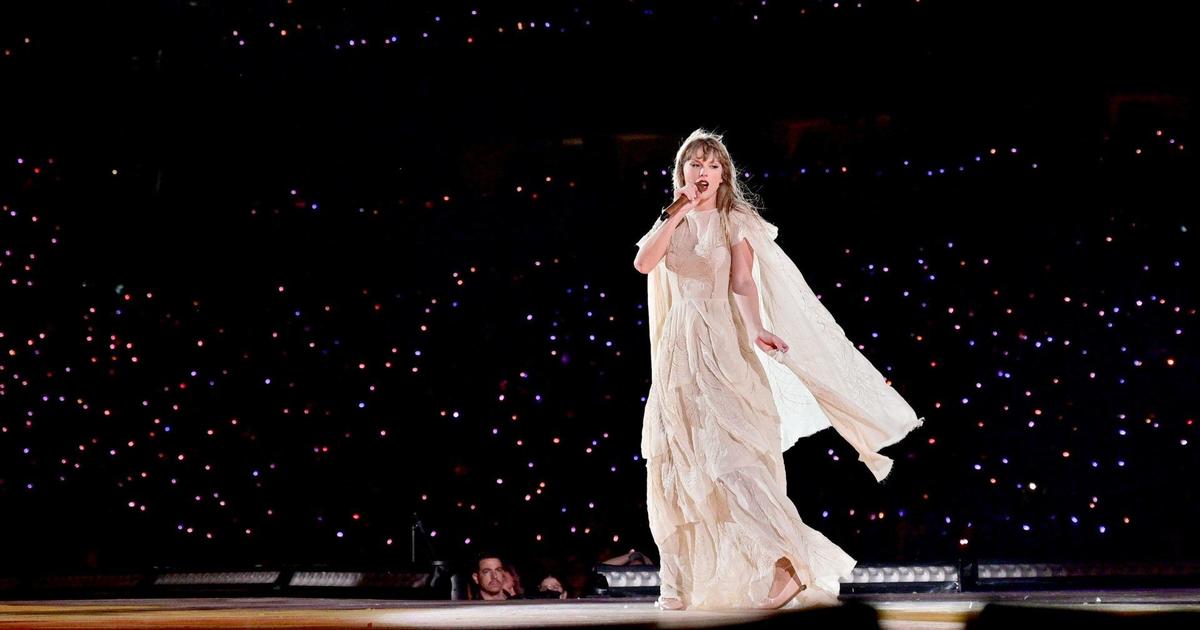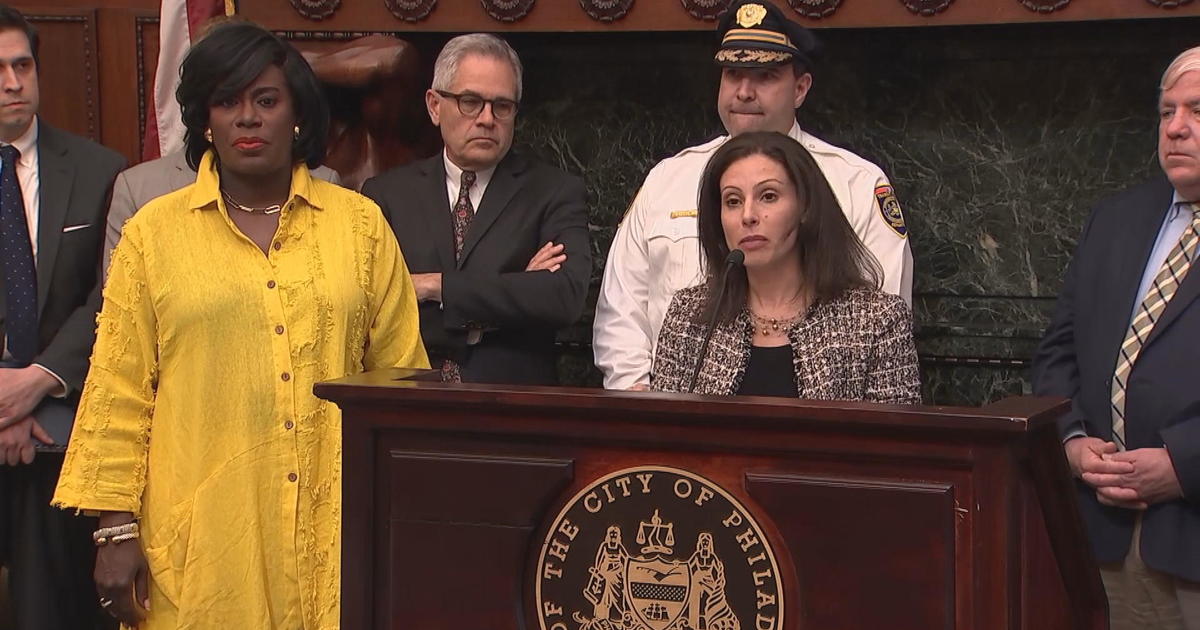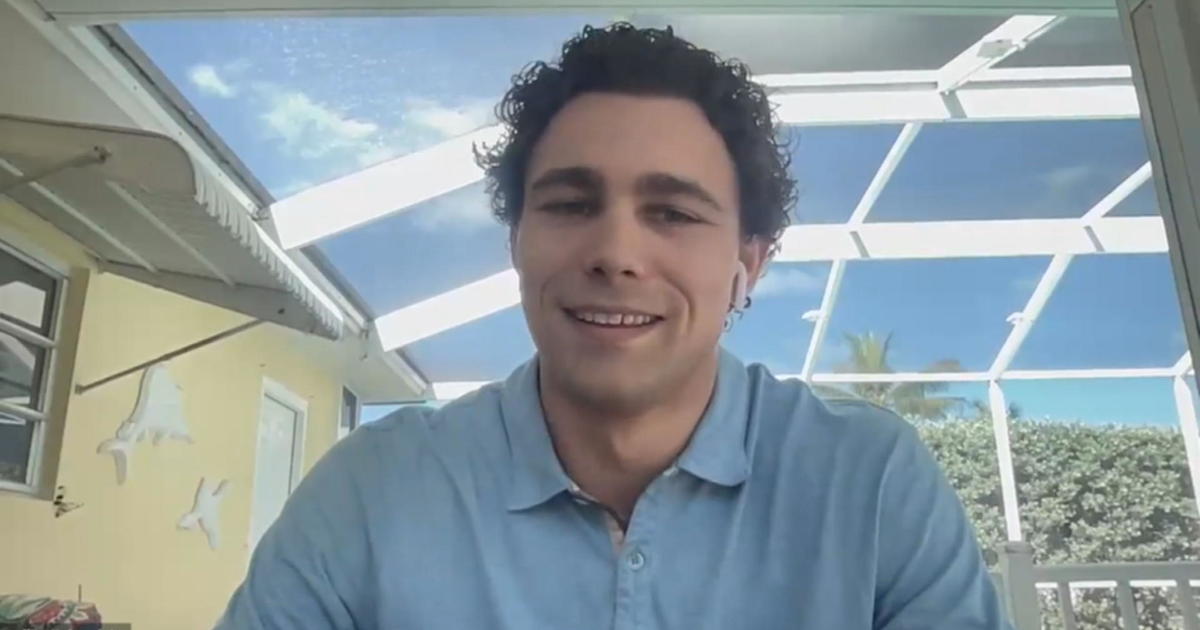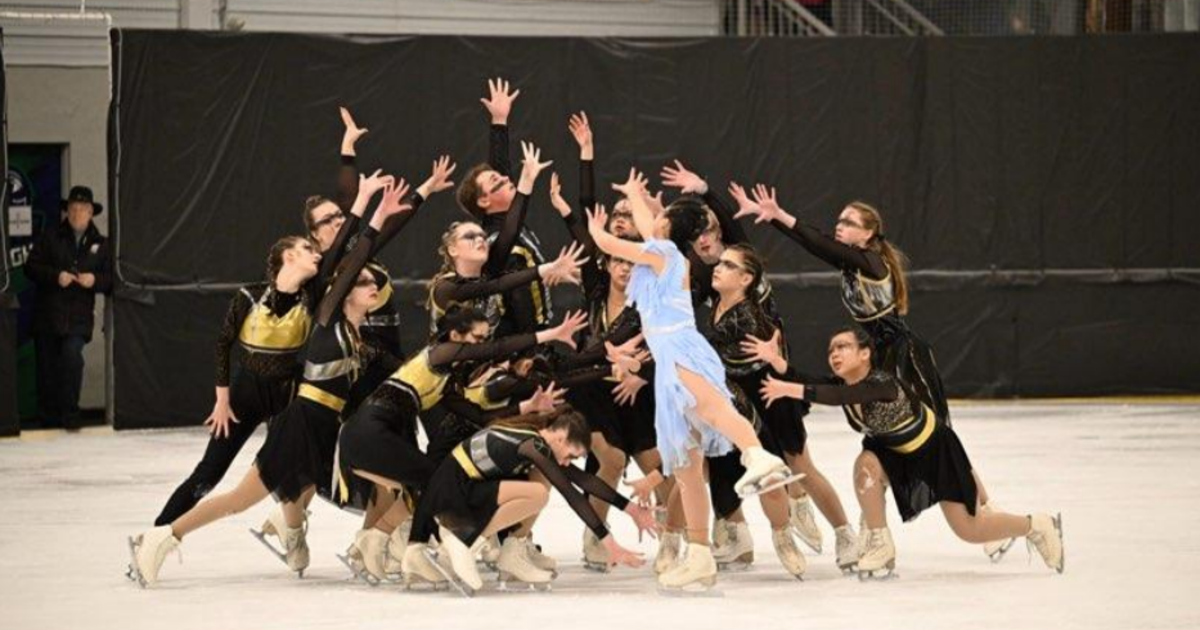Rendell: A Governor People Love - Or Love To Loathe
HARRISBURG, Pa. (AP) - Whether they love him or love to loathe him, Pennsylvanians won't soon forget Gov. Ed Rendell.
When he steps down Tuesday, the Democrat will have governed the nation's sixth-largest state for eight tumultuous years, achieving most of his campaign promises while avoiding any scandal in his administration or a fiscal catastrophe.
As the state's 45th chief executive, Rendell has displayed a keen intellect, a robust leadership style and an unflagging conviction that the state government can always do more to improve the quality of life for Pennsylvanians.
But he faced a divided statehouse and chafed at having to share power with Republicans who controlled at least half of the Legislature throughout his tenure and sought to tame Rendell's appetite for using government to solve the state's problems.
State budget talks were perennially rocky and protracted. Every budget he signed was late—a fact that stoked public hostility toward Harrisburg and often disrupted government operations.
Outside the Capitol, Rendell built on the national reputation he earned as the mayor who turned Philadelphia around in the 1990s and as general chairman of the Democratic National Committee during the 2000 presidential campaign.
In 2008, he helped engineer Hillary Clinton's big Pennsylvania primary win, then led the call for her supporters to rally behind Barack Obama after he clinched the Democratic presidential nomination.
Rendell remains a regular on national political TV talk shows and moonlights as a feisty postgame commentator at Philadelphia Eagles games for the Comcast cable network.
Even political foes of the outgoing governor, who turned 67 this month, agree he can be charming.
"You can't help but like Ed Rendell. If you want to go to a ball game and have a beer, there's not a better person to do it with," said former Sen. Robert Jubelirer, the ranking Senate Republican during Rendell's first term and a key participant in all policy negotiations.
Few Pennsylvanians have not been touched by laws that bear Rendell's signature and frame his legacy.
For example:
--Many taxes are higher, including those on personal income, cigarettes and telephone calls. But millions of homeowners are paying less than they otherwise would in school-district property taxes because slot-machine gambling revenue subsidizes a portion of their bills. Extra aid for elderly people has eliminated those taxes entirely for more than 100,000 seniors, the administration says.
--Public schools are receiving billions of additional dollars that have increased basic subsidies to record levels, expanded early childhood instruction and helped modernize high-school classrooms.
--Smoking is banned in most public places and workspaces, including restaurants.
--Casino gambling has exploded in the state since Rendell signed bills legalizing slot machine betting in 2004 and authorizing table games last year.
--Enrollment in the state-subsidized health coverage program for children, CHIP, increased by more than 50 percent to 193,000 youngsters since 2003, largely as a result of expanded eligibility standards Rendell advocated.
--More than $4 billion has been invested in economic-development programs projected to create more than 300,000 jobs and retain 100,000 other jobs, according to the administration.
--Most motorcyclists 21 or older may now ride legally without helmets in Pennsylvania.
--Alcoholic beverages are easier to purchase on Sundays, now that beverage distributors are permitted to sell beer by the case on that day and many more state liquor stores offer Sunday hours.
Gov. Rendell discusses his career. Watch a piece of his interview...
"We have achieved a great deal of the progressive agenda that I set forth," Rendell said in a recent interview with Capitol reporters.
"He ran on a very ambitious agenda and ... he delivered on a good part of it," agreed G. Terry Madonna, a pollster at Franklin & Marshall College in Lancaster who follows state government and politics.
Rendell was the first Philadelphian in nearly 90 years to be elected as Pennsylvania's governor. Bolstered by his huge popularity in his home city and its suburbs, he was elected in 2002 on promises that he would increase state support for public schools and reduce property taxes. In his inauguration speech, he vowed to make Pennsylvania "the comeback story of the decade."
State spending increased by 37 percent during the Rendell years, largely for education, social services and health care.
Gov. Rendell talks about education. Watch a piece of the interview...
Most of that growth occurred in his first term, following a showdown with the GOP-controlled Legislature over his first budget in 2003. Rendell withheld billions in public school subsidies for six months, provoking shutdown threats from some districts, until lawmakers approved $1 billion in new taxes to avoid a deficit and finance some of his education initiatives.
When he took office, spending totaled just over $20 million. It surpassed $26 billion by 2006, the year he was re-elected, and totals $28 billion this year. Rendell's elected successor, Republican state Attorney General Tom Corbett, will inherit a projected deficit of more than $4 billion in the fiscal year that starts July 1, mainly due to recession-battered tax collections that will no longer be propped up by federal stimulus money and state reserves. Corbett has vowed to balance the budget without increasing state taxes or fees.
Borrowing also increased on Rendell's watch. Annual debt service - principal and interest on state bonds—rose from $764 million in 2003 to nearly $1.2 billion this year, according to the governor's budget office. Still, Standard & Poor's, the credit rating agency, says Pennsylvania's debt level is low compared to states with similar characteristics.
Statewide joblessness has declined in recent months, but stood at 8.6 percent in November. The ranks of employed Pennsylvanians swelled throughout most of Rendell's term, from 5.6 million to a peak of nearly 5.8 million in 2008 but slumped back to 5.6 million in 2009, according to the U.S. Labor Department's Bureau of Labor Statistics.
"From an economic and fiscal standpoint, the facts are not good," said Sen. Dominic Pileggi, R-Delaware, who has served as GOP majority leader throughout Rendell's second term.
Pileggi said Rendell's biggest failure was "the inability to pass a single budget on time in eight years."
While the makeup of the legislative negotiating teams often changes from session to session, Pileggi said the governor was "the common denominator" in those talks and believed that prolonging the discussions enhanced his leverage.
"I think it was a deliberate strategy on the governor's part," Pileggi said.
Jubelirer, who lost his Senate seat in the 2006 election, said Rendell's failure to develop a stronger relationship with key legislators and occasional crossed signals between Rendell and his negotiators often complicated budget talks unnecessarily.
"Sometimes they would say one thing and the governor would say another," he said. "It certainly put up the yellow caution light."
Rendell shrugs at criticism about his negotiating style and says people are more interested in results. He says his proudest accomplishment is the billions of new dollars he has funneled into public education and compared the importance of initiatives that enhance student achievement to expenditures to support American soldiers deployed in Afghanistan and Iraq.
"What the public has to understand is that there is good government spending and bad government spending," he said in the interview.
The state's share of education costs never quite reached the 50 percent goal that Rendell set in his 2002 campaign, but no one is complaining.
"His legacy will be a good one for education," said Timothy Allwein of the Pennsylvania School Boards Association. "It may be awhile before we see another governor who is as kind to public education."
Rendell gets high marks from environmentalists for his 2004 Alternative Energy Portfolio Standards, which set a mandatory target for increasing the share of Pennsylvania's electricity that comes from wind, solar and other alternative sources, and a $625 million bond issue that helped preserve hundreds of thousands of acres of open space.
"Overall, history will treat the Rendell administration really well," predicted Jan Jarrett, president of the Harrisburg-based lobbying group PennFuture.
Rendell angered environmentalists in 2008, when his administration expanded the leasing of state forest land for natural-gas drilling in response to growing industry interest in using controversial new techniques to tap the deep but lucrative Marcellus Shale formation. He finally signed an executive order barring additional leases last fall.
Pennsylvania remains the only state with significant natural gas production that does not tax it. Rendell pushed for a tax in 2009, but backed off in the face of opposition from the industry and Senate Republicans. Efforts to reach a compromise last year were unsuccessful, and Corbett opposes to any state tax on drilling.
Rendell seemed to possess boundless energy. Sometimes, he made news in surprising places—like his participation in the privately funded airlift of 54 children from an orphanage in Haiti following a devastating earthquake in January 2010 to help two Pittsburgh sisters who had volunteered at the orphanage. Rendell said he worked with officials from the U.S. and Haitian governments to help get waivers the children needed to leave the Caribbean nation.
When the Legislature secretively approved the infamous government pay raise bill in 2005, Rendell played a pivotal role— he signed it into law—and in his exit interview he called it his biggest regret as governor.
"I was too easily persuaded to do it because I was told that, unless I did it, we wouldn't get legislative cooperation for the remaining time" in his governorship, Rendell said.
The bill, approved in the dead of night without a hearing or debate, provided fat raises for lawmakers, judges and some executive branch officials, including the governor. Public reaction was swift and blistering. Lawmakers were regularly under attack by newspaper editorialists, radio talk show hosts and Capitol protesters whose mascot was a 25-foot inflatable pig.
The Legislature repealed the law later that year, but voters didn't forget. Two dozen incumbent legislators were turned out of office in the 2006 election. The reaction to Rendell's recent comment about signing the bill is a testament to the political toxicity of the pay-raise issue. Some GOP legislators who supported the pay raise contested Rendell's implication that they threatened him into going along.
"Absolutely not true," said Jubelirer, who was among the ousted incumbents. "It might serve his purposes to say that, but it never happened."
In 2007, Rendell's administration came under sharp criticism after a Valentine's Day winter storm overwhelmed the state's road-clearing capabilities and left hundreds of motorists stranded overnight along an icy 50-mile stretch of Interstate 78.
An independent review of state agencies' handling of the storm and its aftermath cited communication breakdowns, procedural violations and "a remarkable lack of awareness and understanding of Pennsylvania's emergency management system" even among senior officials.
As he prepares to step down after serving maximum two terms allowed by law, Rendell says he does not intend to second-guess Corbett.
"I intend to follow the George W. Bush model—unless we're attacked" by the new administration, he said last week. "My message to Democrats is give him a chance. Don't jump all over him, Don't criticize his appointments. Don't immediately attack his policies unless you've got a better alternative. Give
him some breathing room. And I intend to do just that," Rendell said.
(© Copyright 2010 The Associated Press. All Rights Reserved. This material may not be published, broadcast, rewritten or redistributed.)



